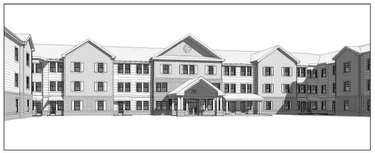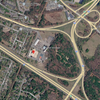Save the Pine Bush objects to affordable senior housing that would take 11 acres from preserve
GUILDERLAND — A technical glitch has caused the Guilderland Town Board to leave open a public hearing on proposed changes to senior housing slated for the Pine Bush.
Residents watching the July 13 meeting either on television or online were unable to hear the first 30 minutes of the meeting.
“I think to be fair and make sure we have a complete opportunity in participatory government, that we will continue this matter to our next meeting, on August 3,” said Supervisor Peter Barber.
As for the public hearing itself, it was to amend Local Law 7 of 2017, which established the planned unit development for Pine Bush Senior Living at 24 New Karner Road.
The change being proposed is replacing 96 independent housing units with 86 mixed-income, affordable senior-housing units, that will consist of 74 one-bedroom units and 12 two-bedroom units.
The narrative included with the board’s agenda said the development is designed for 55-plus senior-citizen households whose incomes are from 30 percent to 90 percent of the area median income — net rents would range from about $444 to $1,244 per month. Albany County’s average median household income is about $66,000, according to the Capital District Regional Planning Commission.
Fourteen of the units are being set aside for frail elderly seniors; nine units are being designed for mobility-impaired residents; and four units are for seniors who have a visual and/or auditory impairment.
Prior to making the switch to affordable housing, monthly rent at the independent-living facility was estimated to start at $2,900, The Enterprise reported in 2019.
The plan at the time was to break ground on the independent-living facility in late 2019, then six to nine months later, begin construction on the 72-bed assisted-living and 48-bed memory-care facilities.
“Right now, the only entity willing to go forward and build anything on the site is NRP,” an engineer speaking on behalf of project developer NRP Holdings LLC said during the July 13 meeting. “So we’re here for them to try to get them starting.”
Fewer than a dozen people spoke during the public hearing, many non-residents spoke about the project’s impact on the Pine Bush, one of the few inland pine barrens in the world, which makes it a unique ecosystem.
Andy Arthur, a Delmar resident and a member of Save of the Pine Bush — a not-for-profit advocacy group — was concerned with the destruction of the Pine Bush with the construction of senior housing.
He also asserted that potential residents would be poor and therefore likely to commit crimes.
The development is to be located on the front 11 acres of a 51-acre parcel, with the remaining acreage being donated to the Pine Bush Preserve.
“You can say, ‘Oh, it’s only a few acres, it’s 10, 11 acres. What’s the big deal?’ Well, the issue is that this happens every year,” Arthur said. His own analysis has shown that, since 2014, nearly 170 acres of the Pine Bush have been destroyed.
Arthur was also concerned that demolition of the Pine Bush was going to be publicly subsidized.
“I don’t like the idea that this project is funded by my tax dollars to demolish more of the Pine Bush … Before, when it was privately funded, you know, they couldn’t make it work under market conditions,” he said. “The reason why it isn’t going to be market-rate housing is because there was no market for it. So they went to the government and they asked for a handout, and this handout is going to be paying for demolition of more Pine Bush.”
The nearly $24 million project is being funded with about $13 million in federal Low-Income Housing Tax Credits; $2.8 million in state Low-Income Housing Tax Credits; and another $3.9 million in federal financing.
Arthur then moved to his view of the real problem: Senior citizens with limited incomes are also obviously elderly criminals.
“Now we’re talking about affordable housing and lower income housing. For one thing, people who are poor often, to be honest, a lot of poor people commit crimes,” Arthur said. “Will this raise the crime rate in Guilderland, will it raise the crime rate in the Pine Bush, will it be more dangerous to hike at Pine Bush at night or in the evening? Will there be more muggings, will there be more pickpocket activities, cars broken into?”
Arthur continued, “You can say, ‘Oh seniors don’t commit a lot of crimes.’ But the fact is that lower-income seniors do commit more crimes than higher-income seniors. I’m not saying this should be a reason to stop the project, but it's something that deserves further evaluation.”
But the Save the Pine Bush member wasn’t done.
“Likewise, health care. There may be more health-care needs with lower-income people because they may not have had as good of health, they may not have as good food when they were younger,” Arthur said. “Again, that could have new impacts, we should be looking into that ... Will they have different recreational desires? People who are lower-income, again, [have] different impacts; they should be evaluated.”



